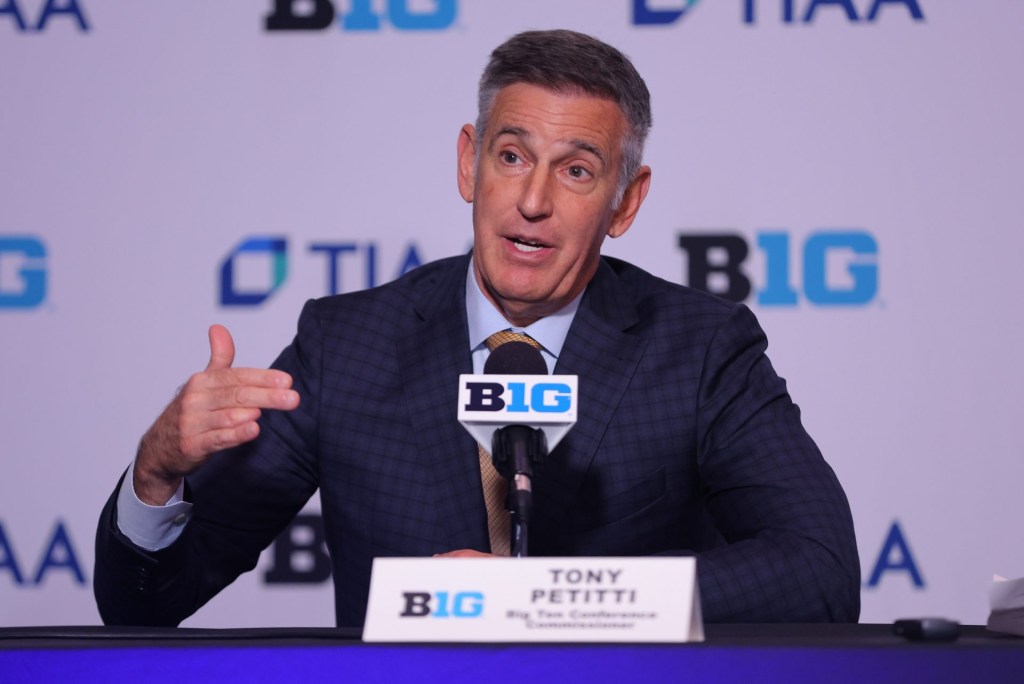FSU roared back twelve days after the ACC said it wanted to keep the university out of conference affairs during the two sides’ ongoing legal battle.
The FSU Board of Trustees filed an amended complaint on Monday that publicly addressed the ACC lawsuit for the first time and provided unflattering details surrounding longtime commissioner John Swofford, who served from 1997 to 2021. The new complaint filed in Florida is 21 pages longer than the original from December and stems from the school’s wish to avoid a $572 million payment to exit the conference.
Most significantly, a new section entitled “The ACC Files an Unprovoked Lawsuit against Its Member” acknowledges the ACC’s legal action, calling the matter the “Unprovoked ACC Complaint.”
FSU says its board of trustees (the subject of the ACC’s lawsuit and the plaintiffs in this one) never entered a contract with the conference. FSU says the conference has changed its course since the Maryland lawsuit, throwing around words like “duties” and “obligations” that do not exist in the conference constitution or bylaws. FSU claims the ACC skirted rules set out in its constitution that notice must be given, a meeting must be held, and a two-thirds majority vote must be cast before the conference takes legal action, a procedure that it says went down before the Maryland lawsuit.
In another new section called “The ACC Has No Confidentiality Arrangement or Agreement with Its Members, FSU opposes a claim made by the ACC that it violated confidentiality agreements by openly discussing media rights negotiations and agreements. The board of trustees and the school have never been asked to sign a confidentiality agreement by the conference or ESPN, FSU says. All the Grant of Rights and media rights agreements are actually public records in Florida, FSU holds.
Plus, the school stated in the other new section that the conference violated the confidentiality agreements it claims exist by disclosing media rights details in the lawsuit.
Coming Down Hard On Former Commissioner
In addition to the new sections, FSU filled in gaps in its initial complaint with more details explaining how the ACC may have come to the media rights decisions it did under Swofford’s leadership.
The university outlined ways Swofford worked to keep North Carolina-based Raycom Sports, which had held rights for the ACC and SEC before the latter went to ESPN, afloat. Swofford’s son, Chad Swofford (who had worked at Boston College when the ACC invited them to the conference), took a job with Raycom Sports in 2007. That personal relationship led to less competitive media rights negotiations incorporating both Raycom and EPSN that didn’t pay out member schools at the same levels as other conferences’ deals, FSU claims.
“It’s rather surprising that a conference would so willingly take less TV money—the core source of revenue in collegiate athletics—just to keep a broadcast company from folding,” reads a Forbes article quoted in the complaint.
Realizing what happened, the conference moved to keep schools from jumping ship in a progressively more intense Grant of Rights agreement, FSU claims. The board of trustees says its members were cornered in individual meetings by Swofford and his media consultant and told the conference would work with ESPN to get the schools more money and had reached the “same terms and conditions” for a prestige network as the SEC, both of which the university says didn’t happen.
FSU claims the media rights mishandlings, including Raycom Sports giving a portion of games to Fox Sports Net instead of ESPN, delayed an ACC prestige network and making member schools pay more than other conferences to get the network up and running.
FSU held its unfavorable position toward the ACC’s new members, adding a chart claiming its viewership vastly outnumbers Cal, Stanford, and SMU.

















